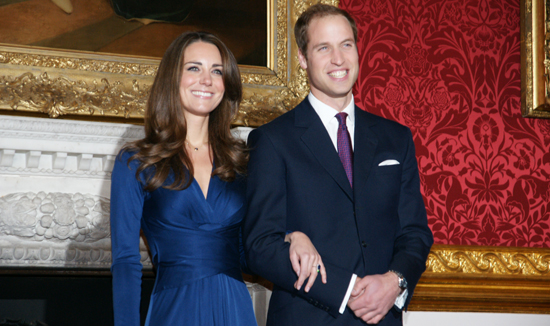The British Monarchy: Relevant or Relic?
Q&A with UAlbany Professor of History Ron Berger
 |
|
Prince William of Wales will marry Catherine Middleton on April 29, 2011. Their children will be heirs to the British throne. |
On April 29th, Prince William -- son of Prince Charles and Lady Diana and second in-line to the British throne -- will marry Catherine Middleton at Westminster Abbey. Despite the essentially ceremonial role of the British monarch, the royal family of Great Britain remains enormously popular throughout the world.
Professor of History Ron Berger is an expert in English history, including early modern Britain. He explains the significance of the British Monarchy and the pending royal wedding of Prince William and Catherine.
Q: How has the role of the British monarchy evolved from absolute ruler to ceremonial head of state?
A: Through a series of bloody revolutions [1642-49], political coup d'etat [1688-89], and constitutional maneuvers [1614-1815] that gradually but effectively shifted the locus of power first to Parliament [Lords and Commons] and then from 1911-14 from the Lords to the Commons.
Q: Does the British Monarchy hold any significant political power in the 21st Century?
A: In fact, no. Some historians believe that symbolically the Monarchy is an effective force, that in providing continuity it "pays its way," but in practice no. Power is held by political parties residing in the House of Commons.
Q: Why has the Royal Wedding of Prince William and Catherine Middleton received so much media attention?
A: In one sense, the monarch provides a smokescreen for the elite to hide behind. For cynics, royal marriages are a bit of entertainment for the masses, a way for the "real rulers" of Britain to govern while presenting the Monarchy as the "soft face" of politics.
 |
|
UAlbany Professor of History Ron Berger (Photo Mark Schmidt) |
For liberals, the Royals provide continuity and stability.
For the ancient rulers of Britain -- the rural, land-owning elite -- they are the symbol of an ancient [and, therefore, hallowed] constitution; the merging of power, religion, and history. It's not all show, however. The main "job" of William and Catherine is to provide an heir to the throne. Thus is power preserved, sanctified, and elaborated to those who understand the symbolism—not the reality—of political power. It's the way the Tory elite justify monarchy.
Q: Catherine Middleton is the first person without "aristocratic connections" to marry into the British royal family in 350 years. What's the significance of Middleton's status and why has it been 350 years since the last "commoner" was married into the royal family?
A: By marrying a "commoner," William has done a real service for the Royal Family. He has kept up the charade of a "people's constitution." In an era of rapid political change, the monarchy adjusts rather than bends to the winds of revolution. It matters little that the House of Windsor has produced few effective monarchs. Longevity and fertility are their responsibility. The monarchy acts as a bulwark against real [i.e., significant] political change. It's all a marvelous show, really. But, perhaps, a deeply cynical one.
![]() For more news, subscribe to UAlbany's RSS headline feeds
For more news, subscribe to UAlbany's RSS headline feeds
Educationally and culturally, the University at Albany-SUNY puts "The World Within Reach" for its 17,500 students. An internationally recognized research university with 50 undergraduate majors and 125 graduate degree programs, UAlbany is a leader among all New York State colleges and universities in such diverse fields as public policy, nanotechnology and criminal justice. With a curriculum enhanced by 300 study-abroad opportunities, UAlbany launches great careers. For more information about this globally ranked University, visit https://www.albany.edu/. For UAlbany's extensive roster of faculty experts, visit www.albany.edu/news/experts.shtml.




